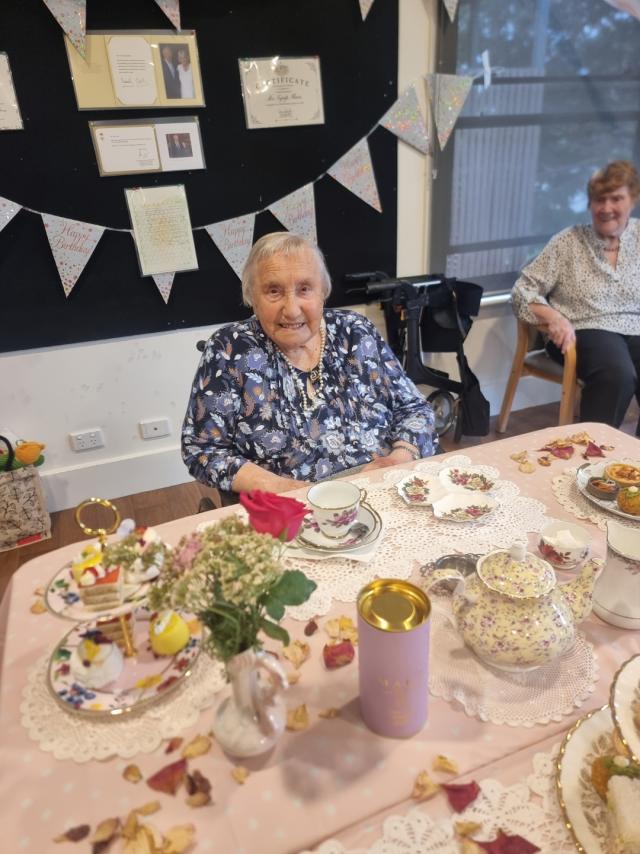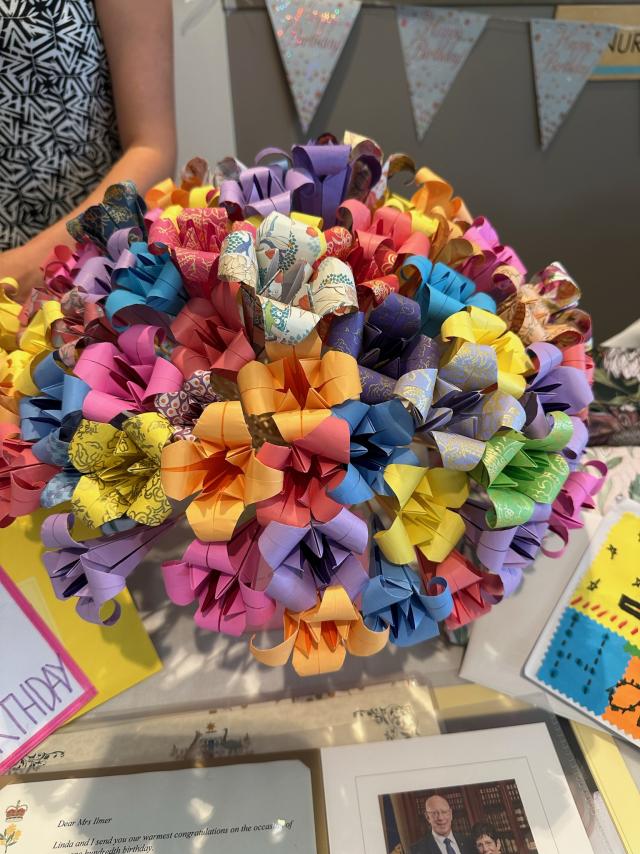
By Tanya Steele
A longtime Boronia community member has celebrated a special milestone recently – 100 years old and counting.
Trijntje (pronounced Truce) said it was ‘a bit of a surprise’ to get to the centenary mark but has enjoyed an afternoon high tea in celebration.
Daughter Bardina Cameron said around thirty family and friends gathered to celebrate her mother’s birthday and the high tea had ‘all the trimmings’.
Born in January 1924, Trijntje moved to Australia in 1955 by boat from Rotterdam, Holland and said ‘there was not much work in Holland’ and a friend had moved to Australia a few years previously.
“We came over on the ship the M.S. Sibayuk, with husband, Tony, my children and my brother,” Trijntje said.
“We ended up living in the Western districts for around five years, my father took work as a builder,” said Ms Cameron.
The family later moved from the Basin and then onwards to Boronia.
“And my father got a job at the Salvation Army Boys Training Center at the bases – he was a carpenter. So he was teaching carpentry there,’ Ms Cameron said.
“She’s done a very good job of getting where she is,” Ms Cameron said.
Ms Cameraon said her mother looked after a lot of the grandchildren over the years, enjoys a bit of bingo and often went on holidays with her sister to Queensland.
“She likes to garden – she had beautiful roses,” she said.
The centenarian has celebrated many milestones in her life including 50 years of living in Australia in 2005 and writing a novel about her life.
Titled “Life’s Stories” Tryntje wrote her family a book of her history, recounting her early childhood and years spent in Holland during war times and detailing her move to Australia.
“…The first week of May 1940, on a beautiful spring day, we were woken by the sound of planes and shooting…our lives changed, it was a very uncertain time, the Germans took over and nothing was the same anymore,” she wrote.
The book is quite detailed and Trijntje recounts living without power and dwindling food supplies.
“Everything was on coupons and we were being fed from central kitchens… First, it was not too bad, but later on, you couldn’t eat the soup it was like dirty thick water,” she wrote.
Of the end of the war she wrote, “ We all went out of bed and took to the streets and everyone joined in the singing, we were free after five years of war.”
On the long boat journey to Australia in October 1955 Trijntje and her family celebrated the crossing of the equator on board. “We had a party, it was so great,” and later docked in Fremantle, Western Australia.
“The first impression is that everything was so big… “ she wrote.
The family rode by train across to Melbourne and began their chapter in the east of Australia, initially living on a farm near Wynarka ‘50 miles from the Murray Bridge’.
“There was a cow I had to milk every night, I was dead scared of it.” she wrote.
By 1963 Trijntje and her family had moved several times but had settled in a house in Boronia, her husband sadly passed away young at the age of 45.
Trijntje recounted in her book that “it took her awhile to get to grips with it… I went back to work and that was the best thing I could have done.”
Trijntje now lives in a retirement home but keeps in touch with family and friends via a tablet.
“I emails and send messages and we FaceTime, I talk to some family in Holland,” Trijntje said.
Trijntje has nine great-grandchildren and has been knitting each of them a teddy, her current aim is to get the final two finished.
“I’m very proud of all of my family, they’re all we’re all doing well and the grandchildren are doing well,” she said.
“Very happy with the way things have turned out.”








